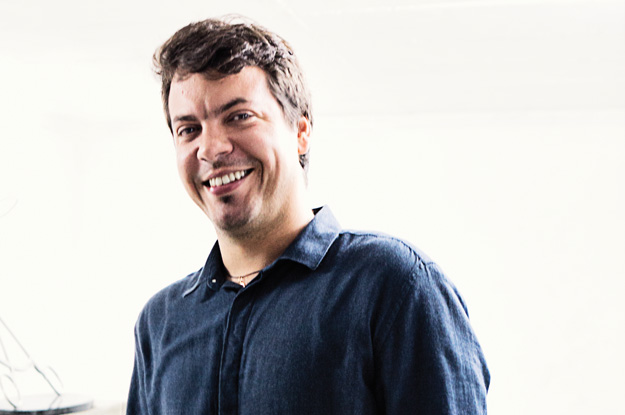Correction appended below
This article is adapted from our AQ Top 5 feature on young Latin American entrepreneurs. To see the rest of our list, click here.
For many, the word “Cuba” brings to mind a bygone era: a place stuck in a time of classic cars and faded architecture. But bubbling below the surface is an economy in motion, propelled by a generation of young entrepreneurs determined to bring digital commerce to the island — Wi-Fi or no.
One of the faces of this emerging economy is 29-year-old Yondainer Gutiérrez, a soft-spoken software designer and one of the founders of AlaMesa, Cuba’s first and most widely used restaurant app. After Cuba eased restrictions on private enterprise in 2011, Gutiérrez, a graduate of the Instituto Superior de Diseño Industrial, and his cofounders started compiling a list of newly opened private restaurants. What started as an online directory quickly developed into a website and app highlighting 900 restaurants in 14 cities across the island. But turning AlaMesa (To the Table) into a successful business would take more than technological know-how.
Gutiérrez had been able to hone his entrepreneurial skills during educational trips to the U.S., but there, as he told AQ, “You’re learning about how to overcome U.S. challenges, not Cuban ones.” That list of challenges begins with the fact that just 5 percent of Cubans have Internet at home, and there are only 233 public Wi-Fi hotspots to serve the country’s 11 million people. To adapt, Gutiérrez and his cofounders took AlaMesa offline. The downloaded app is nearly indistinguishable from connected apps, complete with special offers, photos, and directions, all without Wi-Fi or 4G.
At the same time, Gutiérrez has positioned AlaMesa to take advantage of opportunities that he hopes will become available when connectivity improves. Gutiérrez believes that one day, users will be able to make reservations and pay for meals directly through the app.
On the island, it’s not just limited connectivity that can stop businesses from expanding. While Cuba announced it would legalize small- and medium-sized businesses in May 2016, the law has yet to be approved by the National Assembly. Without that legal status, small businesses can find it more difficult — and in many cases illegal — to access investment or hire employees.
Conversely, because of the U.S. embargo, many of the tools Gutiérrez needs remain out of reach. “We haven’t been able to develop a booking system … because PayPal and other payment platforms aren’t permitted to operate in Cuba,” Gutiérrez said. Companies like Adobe don’t license their products for use in Cuba, forcing designers to patch together solutions without Illustrator or Photoshop. Other tools that app developers depend on to make their visions a reality — such as the Google Developers website, which offers technical resources and discussion groups — don’t work in Cuba.
Still, Gutiérrez believes that innovating under difficult circumstances is just part of being an entrepreneur. And despite it all, AlaMesa has been successful, earning money from advertisers and sitting firmly at the top of mind of hungry Cubans and tourists alike.
Gutiérrez gets animated when discussing his responsibility to help others on the island succeed. Living in a Communist country means that even successful entrepreneurs don’t get to drive the latest car or own a mansion. The onerous tax system, for example, takes up to 60 percent of income and does not allow for deductions for all business expenses. But being successful does increasingly afford the ability to travel abroad, have access to the internet at home, and even purchase an apartment — luxuries that are typically out of reach for the average Cuban.
Gutiérrez believes Cuba can capitalize on its 500,000-person nonstate workforce by letting Cubans invest in themselves. “It might sound crazy, but why not have crowdfunding to support Cubans from within Cuba?” he asked. “Cuban small business and universities could invest in that.”
For Gutiérrez, it all comes down to networks. He believes the cornerstone of AlaMesa’s success has been the nurturing of personal connections forged with fellow entrepreneurs in the app’s early days. But Gutiérrez remains modest about his own accomplishments. “I don’t see myself as a successful person,” he told AQ, “but rather as someone who works hard to achieve what he wants.”
Correction: A previous version of this article mistakenly stated that Gutiérrez’s cofounders also attended the Instituto Superior de Diseño Industrial. This article has also been updated to make clear that AlaMesa is not among a group of small businesses with legal challenges to hiring employees.
—
García is AQ’s production editor.






